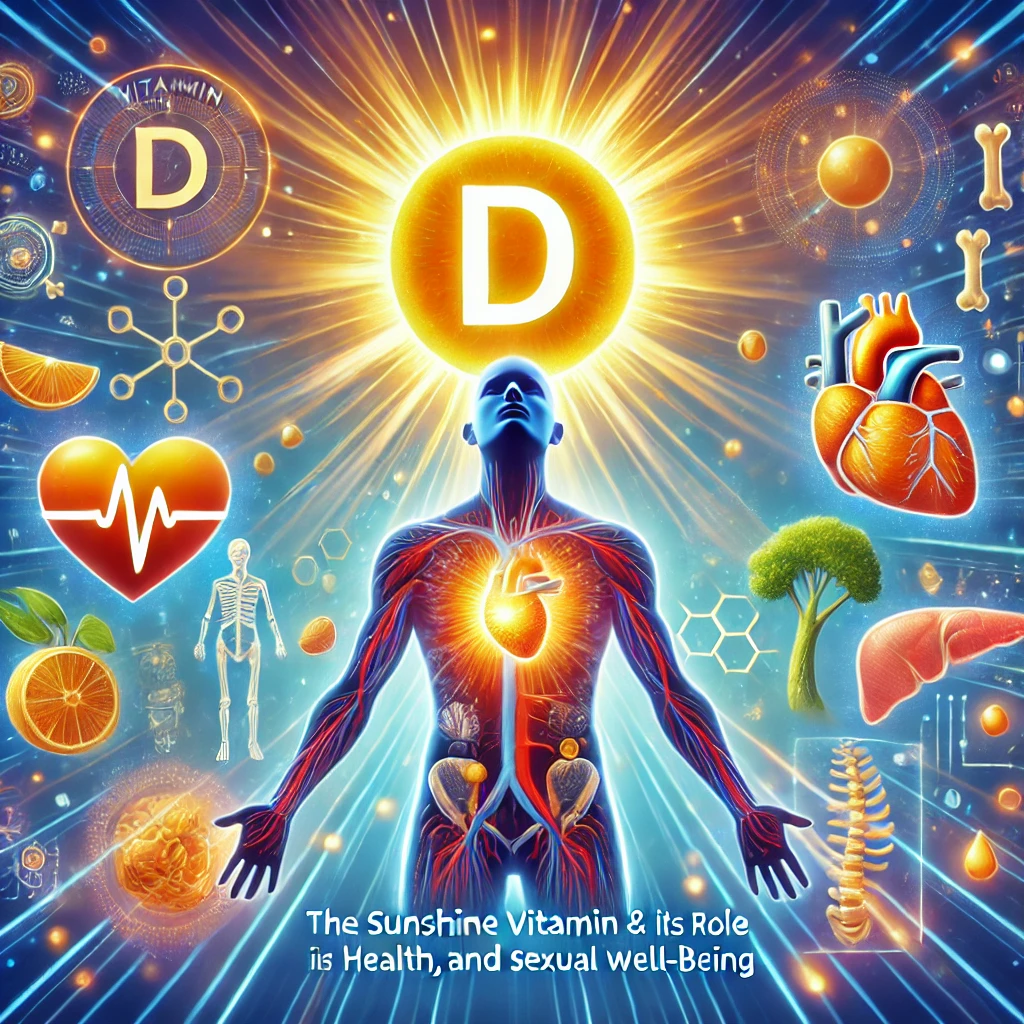Body Dysmorphia and Its Impact on Sexual Life: A Silent Struggle in Men and Women
“The mirror can be a friend or a foe; for some, it’s a lifelong battle.” — Anonymous
Introduction: When Perception Distorts Reality
Karan Johar, the celebrated Bollywood filmmaker, recently made a startling revelation — he has battled Dysmorphia or the Body Dysmorphic Disorder (BDD). His confession opened the doors to a larger conversation about this often-misunderstood condition. BDD, characterized by an obsessive focus on perceived flaws in appearance, doesn’t just harm self-esteem; it can deeply impact sexual intimacy, relationships, and overall mental well-being.
As Dr. Hitesh Shah, a pioneer in Integrated Sexology®, I’ve seen how BDD or the Body Dysmorphia silently infiltrates the bedrooms of both men and women, disrupting their sex lives. My approach integrates Homeopathy, Ayurveda, Modern Medicine, Behavioral Sex Therapy, Foreplay Enrichment, Couple Therapy, Lifestyle Guidance, and more to offer natural, side-effect-free solutions.
Let’s explore how body dysmorphia affects men and women differently — and how we can reclaim confidence, connection, and intimacy.
Part 1: Body Dysmorphia in Men – The Silent Struggle
“I feel too skinny.” “My muscles aren’t big enough.” “My penis size isn’t normal.”
Men with BDD often fixate on musculature, genital size, or hair loss. Social conditioning tells men to man up, leaving them suffering in silence.
Impact on Sexual Life:
- Performance Anxiety: Constant self-consciousness during intimacy.
- Avoidance of Intimacy: Fear of being judged for their appearance.
- Erectile Dysfunction (ED): Psychological distress can lead to ED or premature ejaculation.
Real-Life Case: Raj, a 34-year-old corporate professional, avoided sex for months. He believed his body was unattractive despite being physically fit. Through Integrated Sexology® sessions, he learned self-acceptance and relaxation techniques. Today, Raj proudly says, “I enjoy intimacy without fear.”
Solutions of Body Dysmorphia Through Integrated Sexology®:
- Cognitive Restructuring: Challenging distorted self-perceptions.
- Homeopathic Remedies: For anxiety and obsessive thoughts.
- Sex Education & Foreplay Enrichment: Shifting focus from appearance to pleasure.
- Behavioral Therapy: Building confidence through gradual exposure.
- Lifestyle Modification: Exercise, balanced diet, and mindfulness.
Quote: “Strength is not in the muscles you build, but in the confidence you carry.”
Part 2: Body Dysmorphia in Women – The Mirror’s Cruel Whisper
“My breasts aren’t the right shape.” “I hate my stretch marks.” “I don’t look sexy enough.”
Women are bombarded with unrealistic beauty standards from a young age. Social media filters and comparison culture worsen this perception.
Impact on Sexual Life:
- Body Image Avoidance: Refusing to undress in front of a partner.
- Reduced Libido: Anxiety inhibits arousal and desire.
- Orgasmic Difficulties: Self-consciousness interferes with climax.
Real-Life Case: Sneha, a 29-year-old marketing executive, hated her post-pregnancy body. Intimacy became a distant memory. Through holistic counseling, sex therapy, and body-positive exercises, she reclaimed her sexual confidence. Sneha now proudly states, “I no longer hide under the covers.”
Solutions of Body Dysmorphia Through Integrated Sexology®:
- Mirror Exposure Therapy: Gradual acceptance of one’s body.
- Ayurvedic Herbal Support: Balancing hormones and calming anxiety.
- Sex Therapy & Couple Counseling: Helping partners support each other.
- Guided Mindfulness: Focusing on sensations instead of insecurities.
- Foreplay Enrichment: Shifting the focus from appearance to pleasurable connection.
Quote: “A woman’s sexiness lies in her confidence, not her contours.”
Breaking Free: Unified Solutions for Men and Women
Regardless of gender, the journey from self-criticism to self-acceptance is possible.
Integrated Sexology® Approach for Body Dymorphia:
- Personalized Counseling: Understanding each individual’s unique concerns.
- Medical Integration: Homeopathy and Ayurveda for anxiety and self-esteem.
- Sex Education: Addressing myths and promoting self-awareness.
- Couple Therapy: Strengthening relationships through mutual understanding.
Practical Exercises:
- Gratitude Journaling: Writing three things you appreciate about your body.
- Affirmation Practice: Repeating positive statements like “My body is my ally.”
- Partner Communication: Sharing insecurities openly with a supportive partner.
Humor Corner: “Love your body — it’s the only outfit you can’t return!” 😄
Homeopathy management of Body Dysmorphia
Body Dysmorphic Disorder (BDD) involves an obsessive focus on perceived flaws in appearance, which might be minor or not observable to others. In homeopathy, treatment is individualized based on the person’s symptoms, personality, and overall constitution. Here are some commonly indicated remedies for body dysmorphia in men and women:
1. Homeopathic Medicines for Men:
- Lycopodium Clavatum:
For men who feel insecure about their appearance despite having a good physique. Often accompanied by digestive issues, low self-confidence, and performance anxiety. - Nux Vomica:
For ambitious, competitive men who become self-critical and obsessive about their body image. Often associated with irritability, perfectionism, and a need to control. - Aurum Metallicum:
For men with a strong sense of responsibility who become extremely self-critical, possibly with depressive thoughts due to perceived physical flaws. - Calcarea Carbonica:
Helpful for men who feel overweight and insecure despite being otherwise healthy. Often accompanied by excessive sweating, especially on the head, and a fear of being observed. - Staphysagria:
For men who suppress their emotions and feel inadequate about their appearance, especially when linked to a history of ridicule or humiliation.
2. Homeopathic Medicines for Women:
- Pulsatilla Nigricans:
For women who feel unattractive and become tearful and insecure about their looks. They often seek reassurance and can be very sensitive to others’ opinions. - Sepia Officinalis:
For women who feel disconnected from their appearance and experience self-loathing. Often seen in those going through hormonal changes like pregnancy, menopause, or menstrual cycles. - Natrum Muriaticum:
For women who are extremely self-conscious and sensitive to criticism about their appearance. They often bottle up emotions and dwell on past negative remarks. - Ignatia Amara:
For those who become obsessed with their physical appearance after emotional trauma or rejection. Emotional ups and downs with a tendency to sigh or weep easily. - Calcarea Carbonica:
Useful for women who perceive themselves as overweight and unattractive, even when their body weight is within a normal range.
General Considerations:
- Homeopathy works best when prescribed based on a person’s unique symptoms and constitution rather than the diagnosis alone.
- Body dysmorphia often coexists with anxiety, depression, and obsessive-compulsive traits, which need to be addressed holistically.
- Do not do self medication. The article is for information and education purpose only.
- Professional consultation with Dr. Hitesh Shah, the best sexologist in Mumbai and nearby and online or your family homeopath is essential for correct remedy selection, potency, and dosage.
Conclusion: Reclaiming Confidence, Rediscovering Intimacy
Body Dysmorphic Disorder may distort what you see, but it doesn’t have to define how you feel or love. Through the holistic lens of Integrated Sexology®, couples can rebuild confidence, rediscover intimacy, and rekindle passion.
Remember: “Your body is not a problem to be fixed but a vessel to be cherished.”
If you or someone you love struggles with body image issues affecting intimacy, reach out for compassionate, expert care.
📍 Clinic Address: 301, Sanjar Enclave, S.V. Road, Kandivali West, Mumbai 400067, India 📞 Call/WhatsApp: 9819035111 ✉️ Email: drhiteshshah@gmail.com
Dr. Hitesh Shah – The Best Sexologist in Mumbai for holistic, long-term solutions.
(External Resources:)
- International OCD Foundation – Body Dysmorphic Disorder
- Psychology Today – Body Image and Sexual Health
- Johns Hopkins Medicine – Mental Health and Sexuality
“Because intimacy begins with self-acceptance.”




